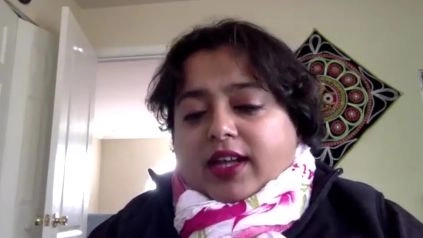Rumela Chakrabarti, PhD of Penn Medicine @PennMedicine answers how come interferon gamma is acting differently?
_____________
Immunotherapies have revolutionized care for people with multiple cancers. But when offered to those with triple-negative breast cancer (TNBC), an particularly aggressive type of the disease, fewer than 20 percent respond.
“A big question in the field has been, Why are the rest not responding?” says Rumela Chakrabarti, an assistant professor at Penn’s School of Veterinary Medicine.
Chakrabarti and the colleagues illuminate the nature of the molecules at play. We identified a signaling mechanism that could be used for potential improved target therapies in TNBC patients. Using a mouse model of the disease that mimics main human disease characteristics, they showed that losing the protein ELF5 activity promotes the activity of another protein, interferon-gamma receptor 1. Stabilized interferon-gamma receptor 1 contributes to activated interferon gamma signaling, which in turn leads to an increase in tumor aggression and spread, which could be mitigated with therapies that block interferon gamma signaling.
“This was an eye-opener,” says Chakrabarti, “because often interferon gamma has a protective effect in cancer and is commonly given as a cancer therapy to some patients. It works well in certain cancer types, but for particular subtypes of triple-negative breast cancer we see that blocking interferon gamma may be the best strategy for patients.”
Read here:Â https://www.eurekalert.org/pub_releases/2020-04/uop-ttf041320.php

